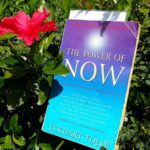In response to emotional overwhelm, our brains oversimplify.
The problem isn’t that you can’t make a decision.
The problem isn’t that you don’t know what to do.
The problem isn’t that you’re stuck.
The problem is that in response to strong emotions, your brain is engaging in a little trick called false dichotomous thinking, where problems are being compartmentalized into two oversimplified solutions. This is actually putting you in a state of fight-or-flight.
The problem is not that there’s no way forward, the problem is that you think you need to choose between two false outcomes.
Almost every major stress-or in your life — particularly if it is even a little bit debilitating or paralyzing—is likely appearing to you as a false dichotomy.
Instead of trying to unravel and make sense of complex life decisions, your brain divides the possibilities into two neat, albeit extreme, options.
This applies most especially to concepts that are non-concrete. We tend to face the most false dilemmas when we’re considering whether or not we are successful, whether or not we are attractive, whether or not we are liked, whether or not we are making the right move.
In the end, these decisions are so nuanced and layered, the stress-fullness that comes with considering all the various implications is absolved into distorting them into two binary options.
The problem is that neither is reality, and when we live in a state of non-reality, we suffer.
False dichotomous thinking looks like this:
If I lose this job, I won’t find another.
If I get into debt, I won’t be able to pay it off.
If I don’t resemble this person, I won’t be attractive.
If my business fails, I have failed permanently.
If I have a child now, I’ll miss out on the travel I want to do.
If I end this relationship, I will be alone.
If I do not end this relationship, I will be unhappy.
These are false dichotomies.
It is possible that you could lose your current job and find better one.
It is possible that you could leave your relationship and find a better one.
It is possible that the acquisition of debt could motivate you to strategize a novel method of repayment, which ultimately would give you another or greater income stream.
It is possible that you could have a child and still travel; it is also possible that you delay having a child and do not travel at all in that time.
These are obviously simplified examples, but the point stands firm: when we start to look at the middle ground, we find that creative solutions are always available to us, but we have to get out of the false dilemma first.
If you start applying this principle to the more complex issues in your life, you’ll find that almost every one of them presents you with an incredible opportunity to change, grow, shift or formulate some outcome you have yet to perceive.
“An old joke has it that there are..
those who believe there are two kinds of people and those who don’t.
This comment is funny because it is paradoxical. It makes its point by defeating the same point at the very same time. Because of this teasing of the human brain, that wants consistency and simple patterns, it can lead us think more deeply, think beyond dichotomy,” Dr. Ellyn Kaschak explains.
Whether it’s politics, religion or our personal lives, we tend to try to categorize issues that are complex, nuanced and exist more in the grey area than black and white. The American Psychological Association refers to false dilemmas as a cognitive distortion because it prevents us from seeing the world as it actually is.
According to Healthline, these are some of the common words used when thinking in false dichotomies:
- always
- never
- impossible
- disaster
- furious
- ruined
- perfect
You might recognize this as phrases such as: “I am going to be the most successful person I know,” followed with: “I am a complete and utter failure and everyone will always hate me.” Or you could think: “My partner is so perfect, there’s nobody like them,” or: “My partner is a nightmare and I can’t believe I am with them.”
In each case, the polarized outcomes are extreme, all-or-nothing, extremely simple, and emotionally charged either positively or negatively.
Neither is likely accurate, and therefore, neither is really helpful.
When it comes to the big, overarching themes in our lives, we could stand to benefit from leaving room for nuance. The truth is that while the grey area might feel a bit more overwhelming at first, it’s also where our field of possibilities are accessible.
False dilemmas often sprout from rumination
We tend to start engaging in false dichotomous thinking when we’re simply overthinking a problem that we don’t need to be.
The truth is that if the problem were solvable, or urgent, we would have to decide on a course of action and then pursue it. However, the “problems” we face when we confront a false dilemma are often abstract by nature: it’s about perception, status, self-image and a sense of security.
We aggrandize or underplay these in accordance with our fluctuating emotions.
When we sit around wondering whether or not we are good enough, we are ultimately going to find evidence that we are both better than we need to be, and not as good enough as we need to be at the same time.
The truth is that the answers to life’s most perplexing questions don’t always need to be answered.
We don’t need to know whether or not everyone thinks we are attractive. We don’t need to know if we are “successful” in other people’s eyes. We don’t need to know what we would do for every possible negative scenario that could possibly crop up in our lives. We don’t need to have an answer for everything.
It’s not because the answers aren’t useful.
It’s because we would waste the entirety of our lives seeking out ideas that serve only to comfort us in some way.
Our time is better spent actually living in the possibilities — discovering what love and success and attraction and joy and experience means to us, as opposed to what we might want to appear as.
The truth about false dilemmas is that they are almost always a product of seeing our lives through other people’s eyes.
When we stop thinking in false dichotomies, we are able to relax, and consider a vast and infinite array of possibility.
Our thoughts look more like this:
I could see myself staying with this job and finding a lot of fulfillment here, but if that’s not possible, I’m always working on my résumé and networking so that other options are available to me.
Debt is not preferable, but I am confident I will find a way to pay it if it becomes necessary for me to take it on for some reason.
I am focused most on emphasizing the most attractive aspects of who I am, and knowing that that, in itself, is enough.
If my business fails, I will come away with invaluable lessons, and will better know what to do and not to do for my next attempt. No failure is a permanent stop in my progress.
I will have a family when the time is right for me, through whatever means are right for me, and I’m willing to let go of the old timeline of what I can or cannot do before and after that point.
As you can see, the approach is much healthier, much more balanced, and much more reasonable.
When we are at our most emotionally charged, it’s usually because we’re stuck in a false dilemma.
Despite consciously thinking we have free will, most people unconsciously operate as though their course in life is predetermined, and to avoid suffering, they must stay on the path.
Over time, many of us come to realize that there is no “path,” there is just the safety and sanctity of what we’ve known, or the adventure and thrill of what we don’t. Either is a worthwhile experience, and it’s typically balancing the two where people find the most fulfillment and joy.
Our brains want to simplify life into binaries, but it is in the creative middle ground that we actually flourish, and see opportunity where we once saw two dead ends.


























